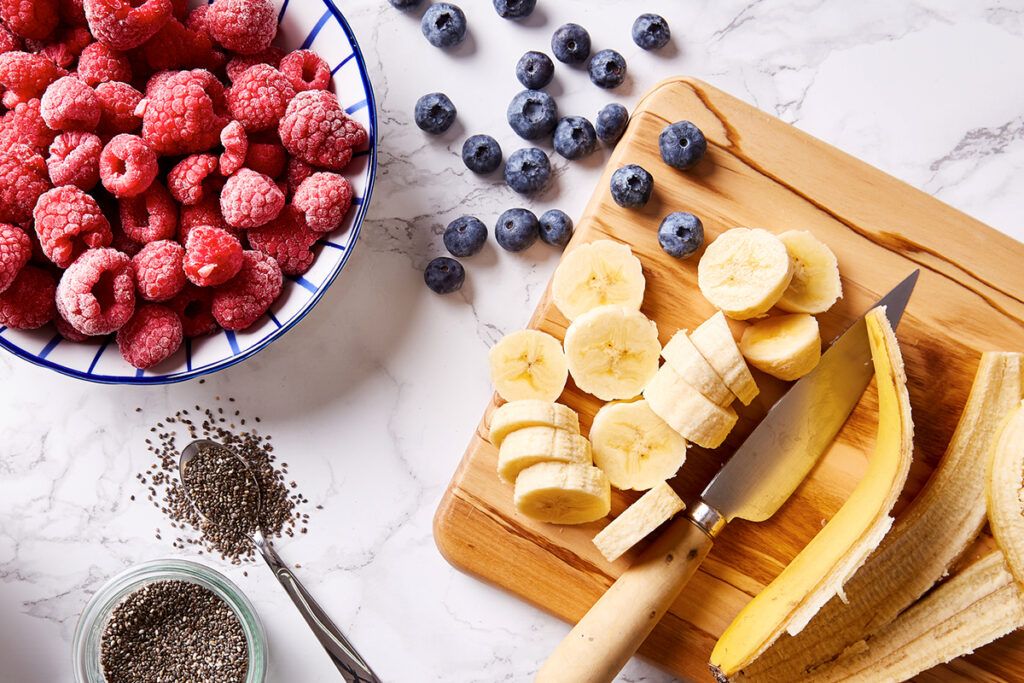Cholesterol is important for your body. It builds cell membranes and helps create hormones and vitamins. Yet if cholesterol levels are too high, it may cause serious health conditions if cholesterol levels.
Understanding how to manage and lower your cholesterol can significantly reduce your risk of heart disease and stroke.
About cholesterol

Cholesterol is a waxy substance in your blood, essential for building healthy cells. There are two main types: low-density lipoprotein (LDL) cholesterol and high-density lipoprotein (HDL) cholesterol.
Your body needs both types, but high levels of LDL cholesterol can lead to a buildup of fatty deposits, also known as plaques, in your arteries. This, in turn, may lead to health complications.
Conversely, HDL helps remove LDL from your blood and can lower your risk levels. This is why people sometimes refer to LDL as “bad” cholesterol and HDL as “good” cholesterol.
Risk factors
Several factors can influence your cholesterol levels. These include:
- diet
- physical activity
- weight
- age
- genetics
Other factors can raise your LDL levels, such as:
- diets high in saturated and trans fats
- lack of exercise
- obesity
- smoking
- health conditions like diabetes
Understanding these risks is the first step to managing your cholesterol.
How to lower cholesterol naturally
Lifestyle modifications are the cornerstone of cholesterol management, and small changes can make a big difference.
Diet
Research from 2021 suggests that what you eat and drink can not only reduce the amount of dietary cholesterol you consume, it can also actively reduce your LDL cholesterol level.
Food
Adding more fruits, vegetables, whole grains, and lean proteins into your meals is a great way to lower cholesterol. Try enhancing your diet with these key ingredients:
- Omega-3 fatty acids: like salmon and flaxseeds
- Nuts: including almonds, pecans, and pistachios, which are high in plant sterols
- Soluble fiber: like oats, artichokes, and beans
- Soy protein: 25 grams of soy protein daily, such as from tofu, can reduce LDL by 3–4%
- Fruits: like antioxidant-rich berries and bananas
- Leafy greens: including fiber-rich spinach, kale, and Swiss chard
- Healthy fats: such as avocado, walnuts, almonds, and chia seeds
- Herbs and spices: like holy basil, turmeric, black cumin, and fenugreek, which add flavor and can have cholesterol-lowering effects within 4–8 weeks
Learn more about herbs that may lower cholesterol.
Drinks
Incorporating black or green tea, unsweetened soy milk, or herbal infusions like ginger and noni into your diet may help lower your LDL cholesterol levels.
Learn more about cholesterol-lowering drinks.
While antioxidant-rich pure fruit juices like orange, cranberry, and pomegranate may offer heart health benefits by potentially reducing LDL-C oxidation, it is important to consume them in moderation due to their naturally high sugar content.
Exercise
According to the American Heart Association, regular physical activity is critical to keeping your LDL level down.
That’s because exercise can raise your HDL and lower your LDL levels. If you are able, aim for at least 150 minutes of moderate aerobic exercise or 75 minutes of vigorous exercise each week.
Weight management
Maintaining a healthy weight can help lower cholesterol levels. Even a small weight loss can make a significant difference, if a doctor recommends it.
If you smoke, consider quitting
Giving up smoking can improve your HDL level, help you become more active, and benefit your health beyond cholesterol.
Stress management
Chronic stress can lead to high cholesterol levels. According to 2017 research, psychological stress was a risk factor for increased LDL cholesterol and triglycerides (types of fat found in the blood), as well as decreased HDL.
Medications for lowering cholesterol
If lifestyle adaptations alone are not effective, you may also require medication, especially if you have a high risk of heart disease. Some of the medications that a doctor might prescribe include:
- Statins: These are the most commonly prescribed medications for lowering cholesterol. They can be highly effective at reducing LDL cholesterol and may also bring about a modest increase in HDL cholesterol. Examples include atorvastatin (Lipitor), simvastatin (Zocor), and rosuvastatin (Crestor). Yet statins may cause side effects, like muscle pain and increased risk of diabetes. It’s best to discuss these with a healthcare professional.
- Bile acid sequestrants: These drugs cause your body to use excess cholesterol to make more bile acids, which lowers blood cholesterol. Examples include cholestyramine (Questran), colesevelam (Welchol), and colestipol (Colestid).
- Cholesterol absorption inhibitors: Ezetimibe (Zetia) is a medication that works by blocking cholesterol absorption from food in the digestive tract, which can help lower LDL levels.
- PCSK9 inhibitors: A newer class of drugs, PCSK9 inhibitors can significantly lower LDL by enhancing your liver’s ability to remove cholesterol from the blood. Examples include alirocumab (Praluent) and evolocumab (Repatha). Healthcare professionals will typically prescribe these medications if you have a genetic condition causing very high cholesterol or if your condition has not responded well to statins.
- Fibrates: Primarily used to lower triglycerides, fibrates can also increase HDL levels. They are less effective at lowering LDL but may be useful in specific cases. Examples include fenofibrate (Tricor) and gemfibrozil (Lopid).
- Niacin (nicotinic acid): Niacin can lower LDL and triglycerides while raising HDL. But its use is limited due to side effects like flushing, itching, and potential long-term effects on blood sugar and liver function.
It is important to note that taking cholesterol medications works best alongside lifestyle modifications to support your health. The choice of medication, dosage, and drug combination will depend on your individual health, cholesterol levels, and risk factors for heart disease.
If you need help covering the cost of medications, the free Optum Perks Discount Card could help you save up to 80% on prescription drugs. Follow the links on drug names for savings on that medication, or search for a specific drug here.
